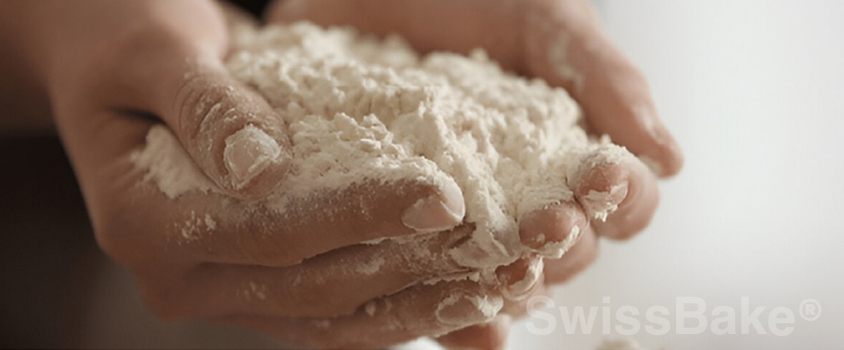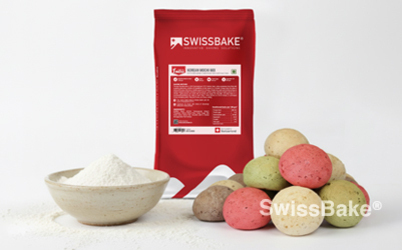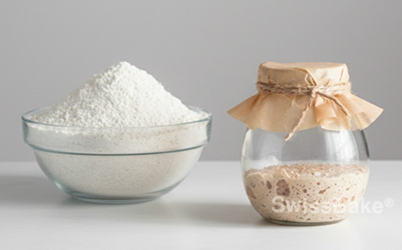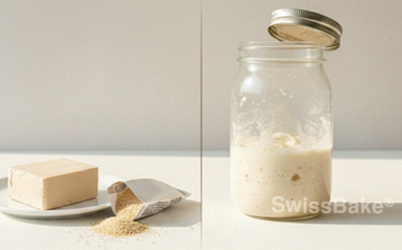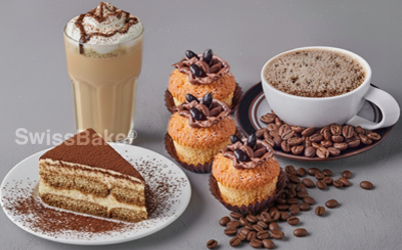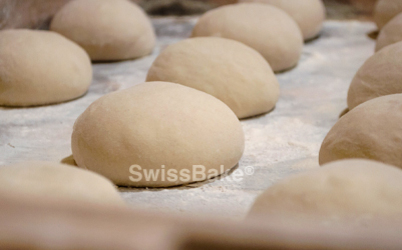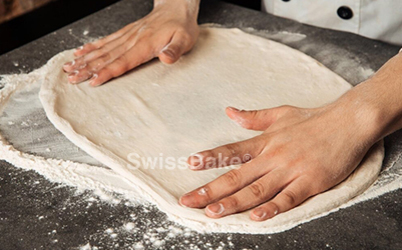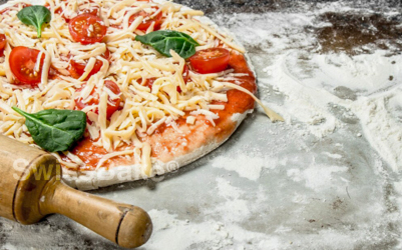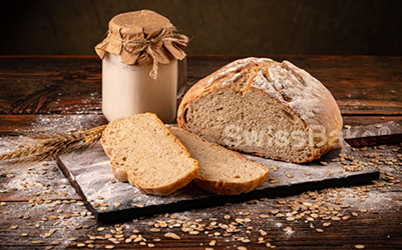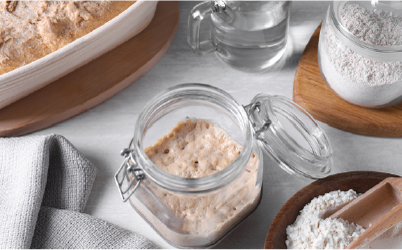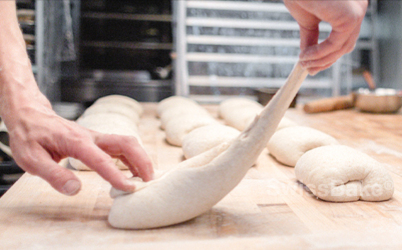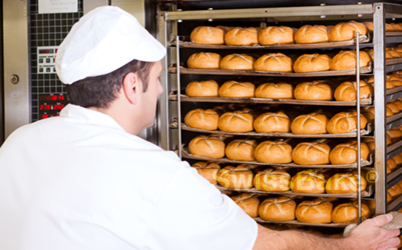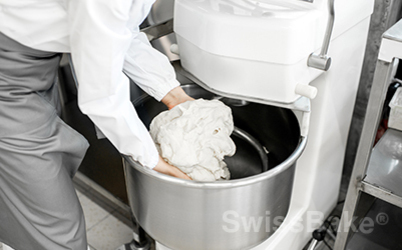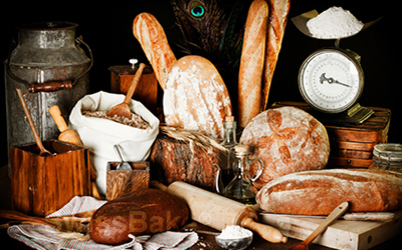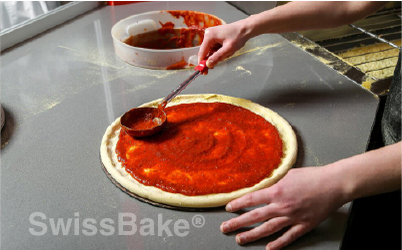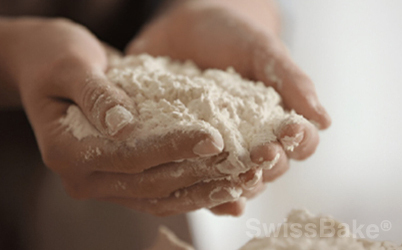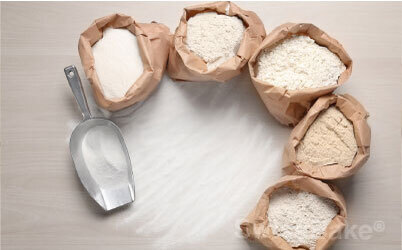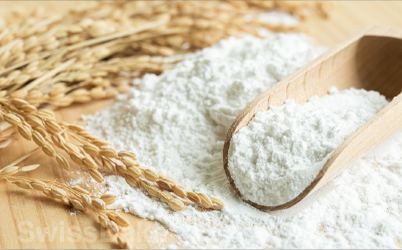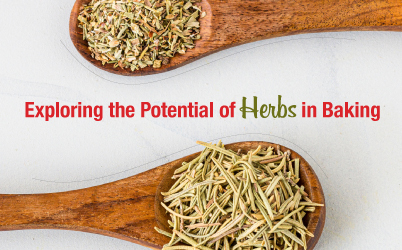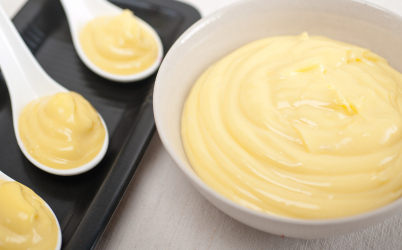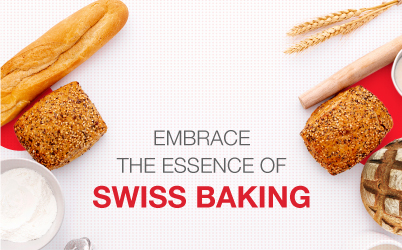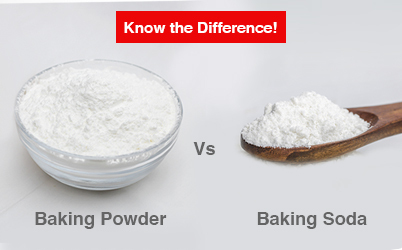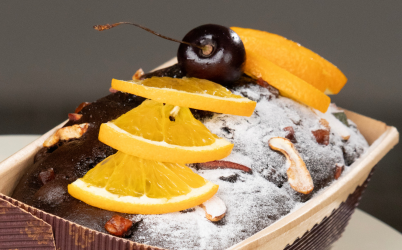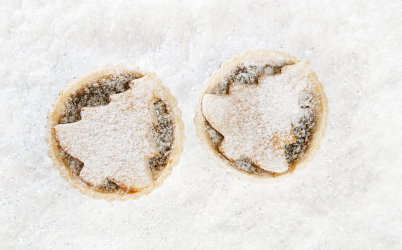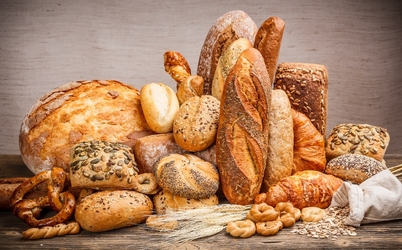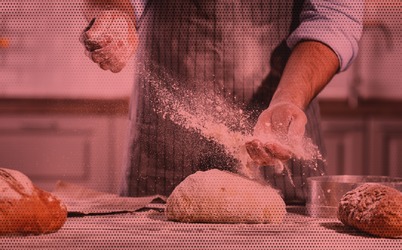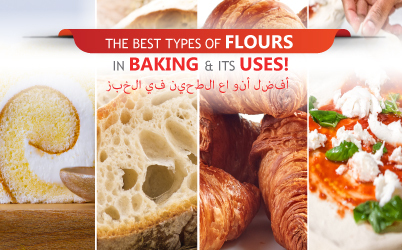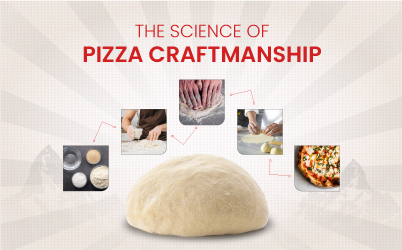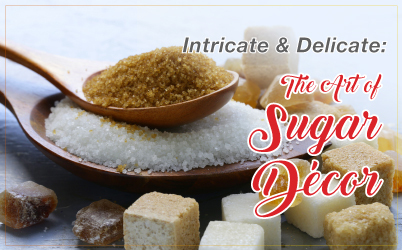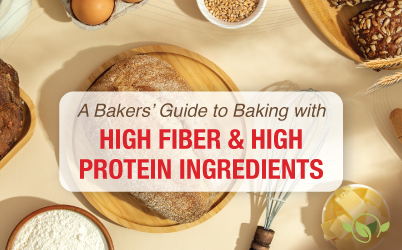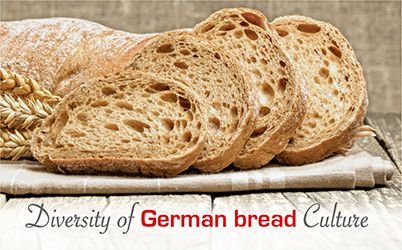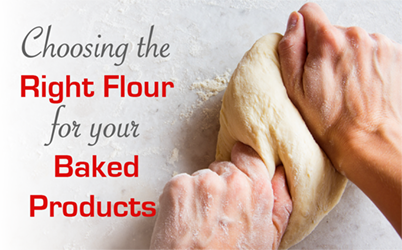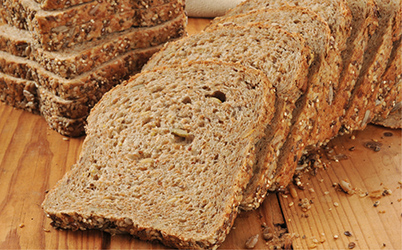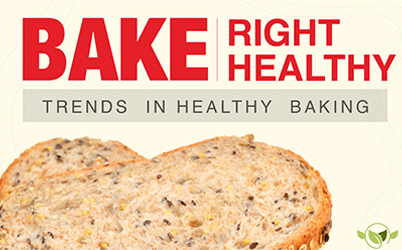Flour Selection: Choosing the Right Type of Flour for Baking Recipes
Flour serves as the foundation of baking. Whether you're a professional baker, a pastry chef, or managing an industrial bakery, selecting the appropriate flour is essential for achieving the desired texture, structure, and flavor in baked goods. Different flour varieties offer unique protein levels, gluten development properties, and textural characteristics, making flour selection a key factor in baking success.
In this detailed guide, we explore the significance of flour selection and how various flour types contribute to different baking applications.
Understanding Flour Types and Their Roles in Baking Recipes
Each type of flour has a specific purpose, ensuring consistency and quality in baking. Below, we outline the most commonly used flours and their best applications.
T00 Flour: The Ultimate Choice for Pizza Dough
T00 flour, often called pizza flour, is a finely milled soft wheat flour with a moderate protein content. It is perfect for achieving an elastic, stretchable pizza dough with an ideal balance of chewiness and crispness.
- Best Used For: Neapolitan pizza, Roman-style pizza, focaccia, and flatbreads.
- Why It Works: Its fine milling allows for effortless dough stretching, excellent hydration absorption, and a light yet well-structured crust.
T45 Flour: The Go-To Flour for Delicate Pastries
T45 flour, also known as cake and pastry flour, has a low protein content, making it ideal for tender, airy, and delicate baked goods.
- Best Used For: Sponge cakes, choux pastry, puff pastry, croissants, éclairs, and macarons.
- Why It Works: The reduced gluten content ensures a soft, melt-in-the-mouth texture without excessive chewiness.
T55 Flour: A Versatile Flour for Viennoiserie Creations
T55 flour is a mid-range protein flour widely used in French baking. It offers a balance between elasticity and softness, making it highly adaptable to various baked goods.
- Best Used For: Baguettes, croissants, brioche, Danish pastries, and puff pastry.
- Why It Works: Its protein level supports both structure and tenderness, essential for laminated doughs and enriched bread recipes.
T65 Flour: The Ideal Bread Flour for Artisan Baking
T65 flour, often called bread flour, has a slightly higher protein content than T55, making it ideal for crafting artisanal bread.
- Best Used For: French bread, ciabatta, sourdough loaves, rustic rolls, and focaccia.
- Why It Works: Its protein level enables excellent gluten development, giving the bread its signature chewy texture and sturdy structure.
T80 Flour: The Flour for Robust, Flavorful Bakes
T80 flour, a semi-wholegrain artisan flour, adds depth of flavor and a slightly denser crumb than refined white flours.
- Best Used For: Country-style loaves, whole-grain sourdough, seeded breads, and rustic baguettes.
- Why It Works: Retaining more bran and germ enhances nutrition, flavor complexity, and texture, making it ideal for hearty breads.
T150 Flour: The High-Fiber Whole Wheat Flour
T150 flour is a whole wheat flour rich in fiber, minerals, and nutrients, contributing to a hearty, earthy flavor in baked goods.
- Best Used For: Whole wheat bread, high-fiber muffins, whole-grain rolls, and flatbreads.
- Why It Works: The bran and germ content enhances nutrition and texture but requires additional hydration for best results.
T1080 Flour: The Distinctive Rye Flour for Traditional Bakes
T1080 flour, commonly known as rye flour, is perfect for baking dense, flavorful loaves with a characteristic deep aroma.
- Best Used For: Traditional rye bread, pumpernickel, German and Eastern European-style bread, and sourdough blends.
- Why It Works: With lower gluten content, it yields a hearty, slightly chewy texture while maintaining excellent moisture retention.
Key Considerations for Flour Selection in Professional Baking Recipes
Choosing the right flour for your bakery or commercial kitchen involves understanding how different properties influence baking results. Here are essential factors to consider:
-
Protein Content and Gluten Development
-
High-protein flours (e.g., T65, T55) create strong gluten networks necessary for bread and laminated pastries.
-
Low-protein flours (e.g., T45) ensure soft, delicate textures ideal for cakes and fine pastries.
-
-
Hydration Absorption
-
Flours with higher bran content (e.g., T80, T150) require more water due to increased absorption.
-
Fine-milled flours (e.g., T00, T45) hydrate quickly, making them ideal for extensible doughs.
-
-
Texture and Final Product Quality
-
The choice of flour influences the final baked product's texture, from airy and chewy (T65 bread flour) to crumbly and tender (T45 pastry flour).
-
Optimizing Flour Usage in Commercial and Industrial Bakeries
For large-scale bakeries and industrial production, maintaining consistency is crucial. Selecting the right flour ensures quality control and repeatability in high-volume baking. Here’s how professionals can optimize flour usage:
-
Standardized Flour Selection: Use designated flour types for specific baked goods to ensure consistency.
-
Batch Testing: Regularly test flour batches for protein levels and water absorption to make necessary recipe adjustments.
-
Storage and Handling: Store flour in climate-controlled conditions to maintain quality and prevent contamination.
-
Customization: Blend flours (e.g., T65 with T80) for specialized textures suitable for artisanal and specialty breads.
Final Thoughts: Enhancing Baking with the Right Flour Type
Flour selection is both a science and an art that significantly impacts baking outcomes. From crafting the perfect Neapolitan pizza with T00 flour to achieving light, flaky viennoiserie with T55 flour, understanding each flour’s properties allows bakers to elevate their craft.
Whether managing an industrial bakery or specializing in artisanal sourdough, choosing the right flour ensures superior flavor, texture, and consistency. Investing in high-quality flour like SwissBake’s premium range guarantees professional results tailored to specific baking needs.
By mastering flour selection, professional bakers and chefs can achieve greater precision, creativity, and excellence in their baked goods.
Looking for premium flour for your bakery? Discover SwissBake’s range today!

